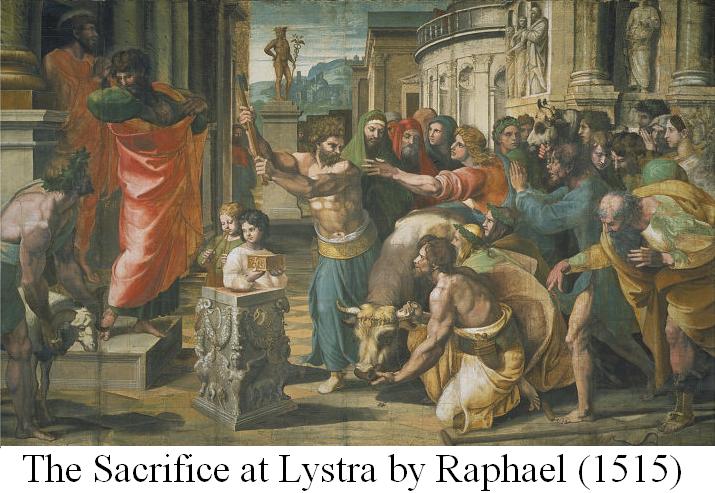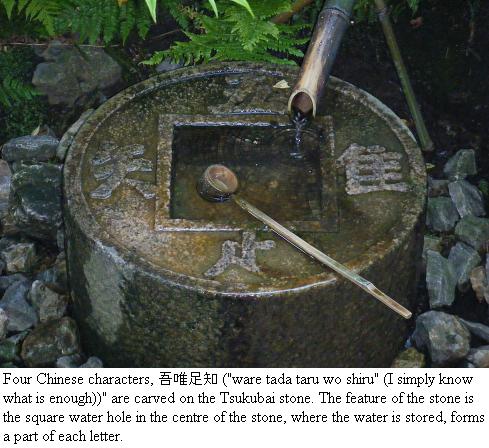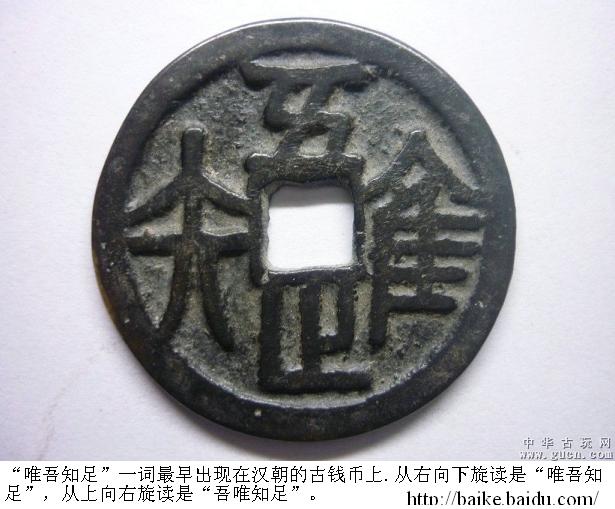Review:The baptism of the Holy Spirit (Virtue of contentment)
While prophets and teachers in the church at Antioch were worshiping the Lord and fasting, the Holy Spirit said, "Set apart for me Barnabas and Saul for the work to which I have called them." So after they had fasted and prayed, they placed their hands on them and sent them off. (Acts 13:1-3)
The mission on Cyprus
Thus, Barnabas and Saul, who had just finished their mission to donate the relief money from the Antioch Church to the Jerusalem Church which had faced a severe famine, and returned, taking with them John, also called Mark, began their missionary trip together with Mark.
Luke, the author of the Acts of the Apostles, suggests that this mission trip had been scrupulously prepared in advance through the words of the Holy Spirit. (Acts 13:2)
The three of them went down to Seleucia and sailed from there to Cyprus. When they arrived at Salamis, they proclaimed the word of God in the Jewish synagogues. They traversed the island from east to west until they came to Paphos where the Roman proconsul was located.
Proconsul Sergius Paulus
At the time, Sergius Paulus had served as a Roman proconsul of Paphos. He seems to have been the father of Lucius Sergius Paullus, an important Roman official in Pisidian Antioch and one of the four commissioners in charge of the Roman streets, tribune of the soldiers of the sixth legion styled Ferrata, quaestor.
By the way, Antioch of Pisidia is different from the Antioch of Syria, where the Antioch Church was established by Barnabas and Saul. Seleucus I Nicator, founder of the Seleucid Dynasty, had nearly 60 cities founded, and gave to 16 of them the name of his father Antiochos.
A boundary stone of Claudius mentioning Sergius was also discovered at Rome in 1887. It records the appointment of the Curators of the banks and the channel of the river Tiber, one of whom was Sergius. Therefore, Sergius Paulus seems to have served as a Curator of the banks and the channel of the river Tiber in Rome in AD 47.
Thus, Sergius Paulus, the Roman proconsul of Paphos, apparently was a proconsul of Senator class in Rome and was higher than proconsuls belonged to Knight class, such as Pontius Pilate who was born in southern Italy. And it is possible that the Sergius Paulus' family, although ultimately of Italian origin, was native to Pisdian Antioch.
According to the English version of Wikipedia, since Paul's journey to Cyprus is usually dated to the first half of the 40s (and some scholars date his visit even earlier), it is thought Sergius may have first served three years as Proconsul at Cyprus, then returned to Rome, where he was appointed curator. As he is not greeted in Paul's Epistle to the Romans, it is possible he died before it was written or went to another appointment.
Sorcerer Elymas
There was a Jewish scholar named Bar-Jesus and also called Elymas, who was an attendant of the proconsul, Sergius Paulus. Elymas means "Wise" in Arabic, and may be used to translate magos, same as the three Magi who visited Jesus after his birth, while annotations in some colloquial translation of the Acts of the Apostles show that Elymas means sorcerer. The Greek name Bar-Jesus means "Son of Jesus" or "Son of Joshua" in Hebrew. Joshua is the successor of Moses. After the death of Moses, he led the Jews who had escaped from Egypt and finally brought them into the land of Canaan.
When the proconsul sent for Barnabas and Saul to hear the word of God. Elymas opposed Barnabas and Saul and tried to turn the proconsul from the faith. Then Saul looked straight at Elymas and said, "You are going to be blind, and for a time you will be unable to see the light of the sun." Immediately mist and darkness came over him. When the proconsul saw what had happened, he believed, for he was amazed at the teaching about the Lord. (Acts 13:6-12)
The birth of the Apostle Paul
It is indeed a surprise that Sergius Paulus was immediately converted to Christianity after he had met Barnabas and Saul. It is more interesting that the author of the Acts of the Apostles has changed not only the name of Saul into Paul after his meeting with the proconsul, Sergius Paulus but also the order of the names of "Barnabas and Saul" into "Paul and Barnabas" to make it clear which of them plays the leading role of their missionary activities. More over, Paul and Barnabas boss have got honorific title, "the Apostle," thereafter in the Acts of the Apostles, much earlier than the first Apostolic Conference, which acknowledged their status of the Apostle to the Gentiles, was held.
Though the Acts of the Apostles does not describe anything why he stopped the use of the Hebrew name of Saul and started the use of the Greek name of Paul, the book suggests strongly that the encounter with Sergius Paulus is the key to solve the question.
Although the episode of the sorcerer Elymas implies that the proconsul had had deep interest in Jews and Judaism from before and had appointed Elym his adviser of the religious issues, tt's unbelievable that the Roman proconsul became a follower of the fledgling the Church of Antioch or the Jerusalem Church, after seeing Saul cast a spell on Elymas and blind him
The annunciation of the Holy Spirit at the beginning of the Chapter 13 - "Set apart for me Barnabas and Saul for the work to which I have called them." - implies that the encounter of Saul and Sergius Paulus had been prepared carefully from much earlier.
There is a possibility that a support to missionary activities of Barnabas and Saul was offered by rather the side of Sergius Paulus who seems to have been interested in Judaism which had built up a network of synagogue even outside of the Roman Empire and had been professed by 7 to 8 percent of all the Roman empire's inhabitants at its high point according to Mr. Shlomo Sand, Professor of history at Tel Aviv University. And then Saul might have obtained the Roman citizenship under the guaranty of Sergius Paulus and have even been adopted into the family of Paulus in preparation for the future missionary work in Rome.
The missionary team goes directly from Cyprus to Pisidian Antioch
From Paphos, Paul and his companions sailed to Perga in Pamphylia and went on to Pisidian Antioch where Sergius Paulus' son and his family seems to have based. However, Mark left them to return to Jerusalem.
Paul and Barnabas toured Antioch and the surrounding towns, such as Iconium, the Lycaonian cities of Lystra and Derbe and preached in synagogues of these towns. Perhaps thanks to the sponsorship of Sergius Paulus' family and the effect of the renaming, their missionary work was initially very smooth in each towns that a great number of Jews and Greeks believed. So they appointed elders for them in each church and, with prayer and fasting, committed them to the Lord, in whom they had put their trust.

However, Both Paul and Barnabas seems to have not scrutinized if the Lord of these believers is Yahweh (Jehovah) or Zeus. In Lystra the crowd called Barnabas Zeus, that is, Greek God of omnipotent, and called Paul Hermes, that is, a messenger of the gods. The priest of the temple of Zeus brought bulls and wreaths to the city gates because he and the crowd wanted to offer sacrifices to them. Paul and Barnabas tore their clothes and rushed out into the crowd and scarcely restrain the people from sacrificing to them. (Acts 14:11-18) Interestingly, this episode suggests that the crowd respected Barnabas more than Paul.
However, after a while they faced backlash from Jewish community in each town. So they shook the dust from their feet in protest against them and went to other towns
After going through Pisidia, they came into Pamphylia, and when they had preached the word in Perga, they went down to Attalia. Thus Paul's First Missionary Journey as an Apostle had now completed and they sailed back to Antioch from Attalia.
Holy am I alone and content with what I am
Ryoan-ji Temple at Ukyo-ku in Kyoto City belonging to the Myoshin-ji school of the Rinzai branch of Zen Buddhism became famous worldwide because when Britain's Queen Elizabeth II made an official visit to Japan in 1975, she visited its rock garden and highly acclaimed it. There is a famous stone water basin called "Chisoku-no-tsukubai," which was donated by Mitsukuni Tokugawa, behind the abbot's chamber.
Tsukubai is a bowl-like washbasin near the entrance of a tea room where you wash your hands before entering the tea room. Four Chinese characters are carved on the Tsukubai stone and a square hole in the center of the stone, where the water is stored, forms a part of each letter. If you read in an anticlockwise direction from the right corner of the photograph, it will becom a Chinese words "唯吾知足", and if you read a clockwise direction from the upper central portion, it will becom somewhat like a Japanese words "吾唯足知(吾唯だ足るを知る)."

"唯吾知足" means "Holy am I alone in the universe and content with what I am." It is just same as the testimony, "Holy am I alone throughout heaven and earth. Grass, trees and the domains of all living things, all attain buddhahood," made by Buddha when he was enlightened upon seeing Lucifer while sitting under the bodhi tree. While the Greek word "Autogenes (God's one and only Son)" means Self-Generated or Self-Conceived in terms of Gnosticism, Jesus proclaims he is the holy one of complete integrity, saying, "I am the way and the truth and the life. No one comes to the Father except through me." (John 14:6) Simon Peter also made a testimony, saying, "We believe and know that you are the Holy One of God." (John 6:68-69) The writer of the Gospel of John makes clear that the Word, which was with God and was God in the beginning, and through which all things were made (John 1:1-3), is the entity of Jesus through out of the Gospel.

While "吾唯だ足るを知る" is expressing a frontier of the one who testifies, "I am content under any circumstance."
The water held in the rectangular opening at its center symbolizes the heart as still water which reflects the whole creation coming and going like a revolving lantern but never being bound by them.
Decorated Chinese characters on the face of "Chisoku-no-tsukubai" are said to be based on the teaching of "The Virtue of Contentment" in "The Buddha's Last Bequest." However the same pattern of Chinese characters are seen on ancient Chinese coins. And the oldest of such coins were minted during the era of the Han Dynasty (B.C.202-A.D.220) earlier than the Later Qin Dynasty (384-417) when Kumarajiva translated "The Buddha's Last Bequest" into Chinese. And Laozi, one of Chinese philosophers in Chunqiu era (B.C.770-B.C475), also says, "Those who know contentment are wealthy," in his analects, "Daode Jing."
Three hundred thousand families of Shravasti
Once upon a time, Shakyamuni Buddha taught for twenty-five years in Shravasti, the capital of the Kosala kingdom of ancient India. At that time, nine hundred thousand families lived in the city: one third had actually seen the Buddha, another third had only heard of him, and the remaining third had neither heard of nor seen the Buddha. (The Treatise on the Great Perfection of Wisdom by Nagarjuna) However, the Buddha still testified, "Grass, trees and the domains of all living things, all attain buddhahood." By the way, since it was counted 100 thousand as 100 million in the ancient India, the total population of Sravasti seems to have been 900,000 households.
<To be continued.>What is "Baptism with The Holy Spirit"?
According to the dialectic of the Gospel of John,
【Thesis】"A man can possess eternal life through accepting testimony of the Son of man and being baptized by him." (John 5:24)
【Anti-thesis】But "The one who comes from the earth cannot accept the testimony by one from heaven."(John 3:32)
How then can a man possess eternal life?
【Synthesis】"If you want to be baptized with the Holy Spirit, you can just go back to the word which was with God in the beginning (John 1:1) and certify that God is truthful. (John 3:33)"
When he said, "You are Huichao," Zen Master Fayan thrusted vivid Self in Huichao in front of his eyes. (P.171)
Purchase here
[Reference]
○Sergius Paulus
○Sergius Paulus, Proconsul of Cyprus
○龍安寺
○Ryoanji Temple
○龙安寺
○龍安寺の知足の蹲踞
○知足之心---龙安寺的石庭
○“唯吾知足”的来历
○佛遗教经
○『仏遺教経』とは
○《佛遺教經》The Buddha's Last Bequest
○《大智度论》
≪The Buddha's Last Bequest : The Virtue of Contentment≫
O Bhikkhus, if you wish to escape from all kinds of dukkha, you must see that you are contented. The virtue of contentment is the basis of abundance, happiness, peace and seclusion. Those who are contented are happy even though they have to sleep on the ground. Those who are not contented would not be so though they lived in celestial mansions. Such people feel poor even though they are rich, while those who are contented are rich even in poverty. The former are constantly led by their five desires, and are greatly pitied by the contented. Such is the meaning of 'contentment.'
≪Daode Jing by Laozi Chapter 33≫
Those who understand others are intelligent
Those who understand themselves are enlightened
Those who overcome others have strength
Those who overcome themselves are powerful
Those who know contentment are wealthy
Those who proceed vigorously have willpower
Those who do not lose their base endure
Those who die but do not perish have longevity
Your Comments / Unsubscribe
SEAnewsFacebook
SEAnewsGoogle
SEAnews eBookstore(Google)
SEAnews world circulation